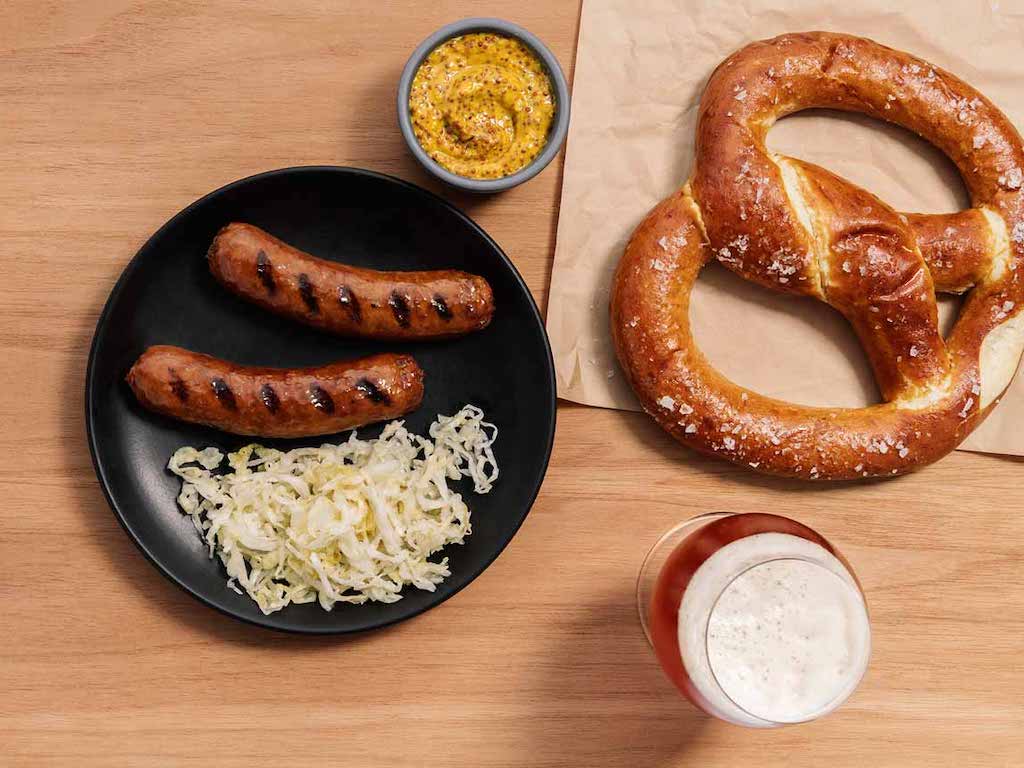3 Mins Read
Widespread fears over poor working conditions in meat factories after a number of coronavirus outbreaks is accelerating the plant-based trend in Germany. According to new data from market analysts, the number of vegetarians in the country has doubled while nearly a third of all households are now actively reducing meat consumption, in line with similar trends observed all around the world.
German consumers are opting for plant-based meat substitutes more than ever before after mounting concerns over repeated coronavirus outbreaks recorded at slaughterhouses in the country. While the U.S. has recorded the worst viral outbreaks in its meat facilities, Brazil and Germany are also among the top countries with serious surges in cases within its slaughterhouses.
Earlier in May, Green Queen reported that over 300 confirmed cases of Covid-19 were reported in a single meat processing plant in Birkenfeld. Later in June, more than 1,500 workers at the Toennies slaughterhouse and meat packing plant tested positive for the coronavirus.
Overcrowded working conditions, made up primarily of migrant workers or marginalised communities living in communal or cramped housing and inadequate worker protections have created the perfect breeding ground for coronavirus clusters in meat plants.
In Germany, many meat plant workers hail from eastern European countries and are often subcontracted by companies, paid low wages and live in cramped accommodation.
“We see a trend away from very cheap meat and towards higher quality and substitute products.”
Robert Kecskes, analyst at GfK
According to recent data from GfK, Germany’s largest market research firm, the number of Germans switching to a vegetarian diet has doubled within the last five years alone, thanks to the long-term trend of rising health, sustainability and animal welfare concerns.
Now, with the meat industry’s danger exposed, almost a third of households in the country are choosing to reduce meat consumption, marking a big turnaround for Europe’s biggest pork producer famous for its sausage-loving food tradition.
“We see a trend away from very cheap meat and towards higher quality and substitute products,” Robert Kecskes, an analyst at GfK, told Reuters. “It is not only about animal welfare, it is about human welfare, and that will become entrenched in people’s minds.”
This has prompted a number of companies to quickly shift their business models to capitalise on the growing demand. Ruegenwalder Muehle, a brand that used to specialise in meat cold cuts but has since transitioned into the country’s largest plant-based meat substitute maker, reported that its sales have jumped 50% so far this year.
German consumers are not alone in embracing plant-based substitutes in the wake of the coronavirus. Recent polls from the U.S. to the U.K. and Hong Kong have all reported that shoppers are now seeking to reduce meat consumption dramatically as a result of the pandemic, while analysts in South Korea say that the numbers of flexitarians in the country could now be as high as 10 million, representing almost 20% of its total population.
Overall, the United Nations FAO estimates that this global pattern will trigger the biggest drop in meat intake seen in decades.
Aside from steering away from an industry responsible for unethical human conditions and public health dangers, opting for plant-based foods will also alleviate the environmental burden on the planet. With animal agriculture behind for 18% of global greenhouse gas emissions, transitioning away from an animal-centric food system will be a crucial part of efforts to curb climate change.
Lead image courtesy of Beyond Meat.




